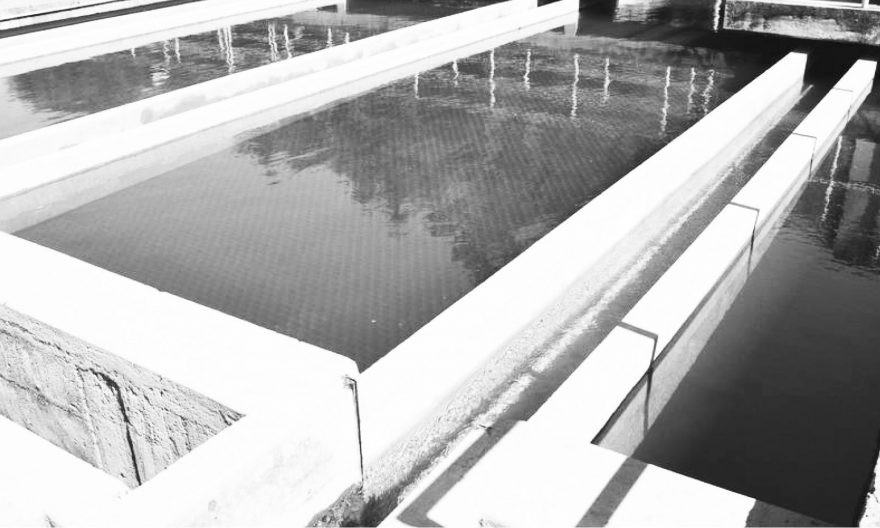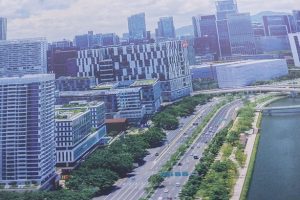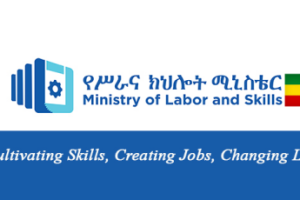
Ethiopia is a large, diverse country with a population of over 100 million people, and one of the least urbanized in the world. Nevertheless, it is now urbanizing rapidly. According to Ethiopia’s Central Statistical Agency (CSA) projections, the urban population will triple from 15.2 million in 2012 to 42.3 million in 2037.
The World Bank projects of urbanization in Ethiopia indicate that by 2030, there could be 40 million urban dwellers, equivalent to 30 percent of the population. The infrastructure and the services that the cities and towns have, especially for water and sanitation, are under pressure as people move towards new opportunities in the cities and towns.
Along with the rapid growth of urbanization, data and statistics have shown that lack of access to sanitation, use of unsafe drinking water, and poor hygiene are responsible for major deaths from diarrheal diseases in developing countries like Ethiopia. Sanitation and health experts are also estimated that improved sanitation alone could reduce by one-third the global incidence of diarrheal disease, a leading killer of children, and can also play a major role in reducing parasitic infections that impede child development.
Cognizant of the crucial role of water, sanitation, and hygiene in health development, the United Nations (UN), in Resolution 64/292, explicitly recognizes the human right to water and sanitation. This resolution declares that safe drinking water and sanitation are essential to the realization of all human rights and calls upon states and organizations to support developing countries in the provision of safe, adequate, and accessible drinking water and sanitation for all.
Ethiopia taking its urban policies, international resolutions, the livelihoods of the nation into accounts, has been working to alleviate the nation’s water, sanitation, and hygiene-related problems. The new government has also shown its firm commitment to the improvement of sanitation, use of unsafe drinking water, and poor hygiene. Besides, the new government pledges to work for the betterment of the cities and their facilities.
In her inaugural address to the joint session of the Houses of Federation and the House of Peoples Representatives on 4 October 2021 President Sahlework Zewde said that “cities will be governed by a comprehensive plan and decentralized city administration. Improving the efficiency of land and housing supply and management systems in urban areas will create a conducive living environment”.
Additionally, “unfinished projects started in different parts of the country will be completed this year and will be available to benefit citizens. By expanding the supply of drinking water, sanitation, and hygiene, the service will benefit the underserved population. In particular, Abay, the source of many years of Ethiopians’ regret and sadness for its not being of national use is now being harnessed and is reaching the final stages of rescuing Ethiopians from the darkness this year after so much sacrifice and diplomatic battles,” she added.
Addis Ababa Plan and Development Commission Office for the City Administration Resilience Project Urban Planning Expert Ephrem Gezahegn told The Ethiopian Herald that the concerns, the newly formed government, has given to urbanization and related issues such as drinking water, sanitation, and hygiene could easily solve the problems that the urban population has faced.
Urban planning and implementation need a huge amount of resources. Modernization cities need big wealth which could not be applicable only by individuals. Along with the active participation of the people, the commitment of the government is needed to prepare well-studied urban master plans and provide resources, he said.
To modernize the city, the government is not only limited to the provision of drinking water, sanitation, and hygiene but it also wants to extend its commitment to urban tourism sectors development. This would help to modernized the cities of the country. For this, the people of Ethiopia have contributed financial resources via the “dine for nation project” which is initiated by Prime Minister Abiy Ahmed.
Currently, the construction of public spaces like Friendship Square, Unity Park and Entoto Park has been completed. The projects have a big potential to generate revenue serving as a tourist destination. Expanding the experience to peripheries of the country, the government has started implementing similar projects namely Gorgora, Wonchi, and Koisha. The people have also contributed to these initiatives through a fundraising dinner entitled “Gebeta Le Hager” or meaning “Dine for the nation” These are very important developments of the government for the past three years. This is because the tourism sector is another area the government gives attention to along with modernizing cities.
According to President Sahlework Zewde, to increase the resources available in the tourism sector, existing destinations need to be strengthened by strengthening heritage conservation work and improving the service delivery of the sector. New tourist attractions will also be developed. The development of Gorgora, Wonchi, and Koisha tourist destinations launched at ‘Gebeta Le Hager’ for the country project will continue as planned.
“It is also useful to develop our natural resources and tourist destinations in different parts of the country. All regions, zones, woredas, and city administrations should emulate what Addis Ababa has attained with the good practice of developing tourist destination parks,” she underlined.
Ethiopian Ministry of Urban and Infrastructures has planned in 20/21 fiscal year to achieve the urbanization projects by the resources that the country has. Besides, the ministry has developed software to administer urban houses and house infrastructure.
The attempts by various city administrations, institutions, and organizations to create modern cities and solve problems of drinking water, sanitation, and hygiene, have not brought the intended results. But the newly formed government, in its first motion, has pledged to solve the ever-existing urbanization problems. This is because while protecting the interest of future generations, government planning, and devotion will resolve issues related to urbanization.
BY EPHREM ANDARGACHEW
THE ETHIOPIAN HERALD OCTOBER 13/2021





